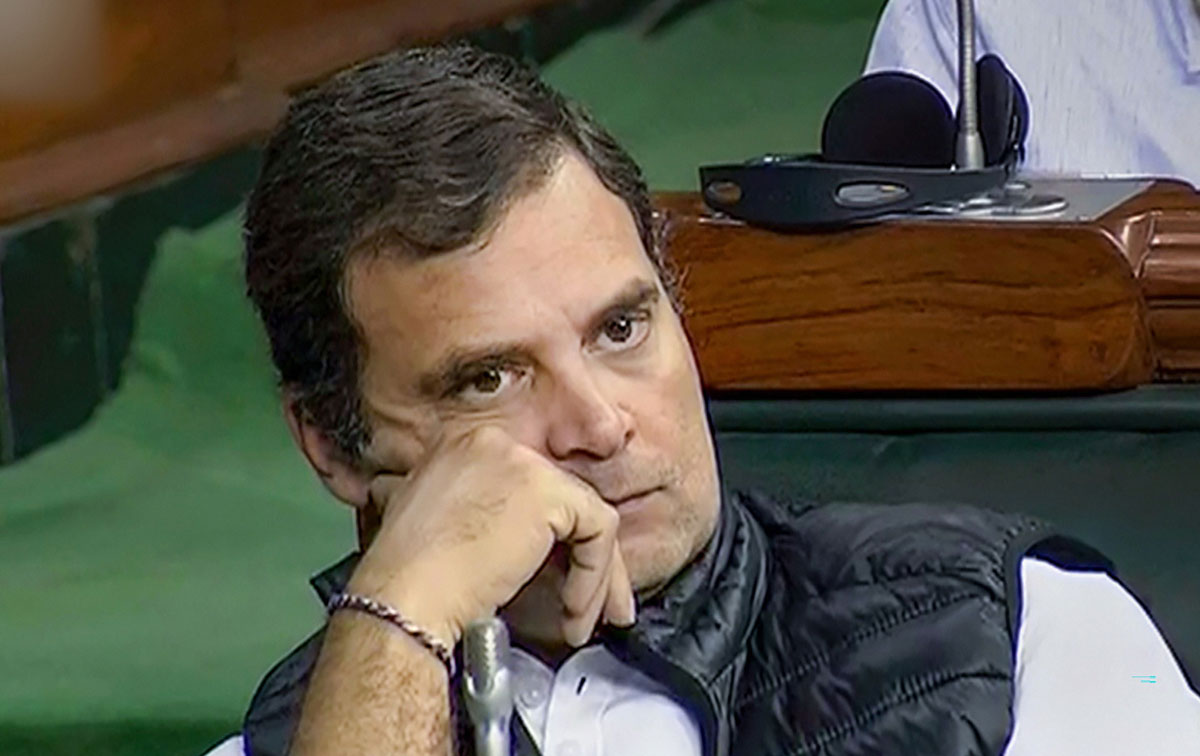The BJP’s belligerent Hindutva thrust in the Delhi elections and the social divisions on the question of citizenship have created concerns about future politics among large sections of the Congress but leaders believe the need of the hour is to firm up the ideological position, not dilute it.
What rang the alarm bells is the washout in the elections where most candidates felt the Congress was perceived as anti-Hindu and pro-Muslim while Arvind Kejriwal’s Aam Aadmi Party didn’t suffer from any such handicap.
Some leaders felt that voters who got disenchanted with the BJP because of economic issues were willing to negotiate with Kejriwal but not ready to accept Rahul Gandhi’s strident anti-Narendra Modi posturing.
Many leaders — both senior and young — believe the abnormal pressures of mass politics require a centrist party like the Congress to negotiate with the conservative voters on their terms, without expecting them to appreciate the radical secular rhetoric.
“We have to realise that Hindu sentiments matter most in the country,” a senior leader, who insists the Congress has to reinvent itself, explained. “Being secular doesn’t mean we try to convince the voters that they have to correct their ideological position and accept our interpretation of constitutionalism.”
But key strategists, who believe politics cannot be subjugated to electoral tactics, firmly rejected this cautious advocacy of a soft line.
“We know how our own people feel about being branded pro-Muslim. But we can’t surrender to these abnormalities; we have to fiercely counter this propaganda,” one of them told The Telegraph. “The BJP’s politics is tearing apart the soul of India. We can’t restrict the discourse to roads, health and education. We have to articulate our concerns for ideological and humanitarian issues. Ideology is not merely academic or electoral; it is connected to life processes.”
The Congress leadership had boldly grappled with dissensions within while taking a firm stand on the abrogation of key provisions of Article 370. There was no compromise either on the CAA-NPR-NRC citizenship matrix, despite serious apprehensions of a Hindu-Muslim polarisation.
The readiness to run this risk was reflected in various forms. While Congress chief ministers led anti-CAA rallies and passed resolutions against the amended citizenship law, the Congress Working Committee rejected the NRC (National Register of Citizens) and the NPR (National Population Register) and party leaders even moved the Supreme Court.
While Sonia Gandhi and Rahul Gandhi repeatedly expressed solidarity with those protesting against the CAA, Priyanka Gandhi Vadra went a step farther by visiting the victims of police brutalities when leaders of other secular parties were keeping aloof.
From Bijnor to Azamgarh, she chose to visit Muslim families without caring for distorted projections of her politics by the BJP and took the extraordinary step of compiling a list of cases of atrocities in Uttar Pradesh to be submitted to the National Human Rights Commission.
One Delhi candidate reacted angrily: “We were struggling to convince the voters that the Congress was not pro-Muslim when Priyanka was doing all this. Photographs of Rahul and Priyanka with Muslims were being circulated on WhatsApp and voters were questioning our motives. People said Rahul was speaking the language of communist Kanhaiya Kumar. We couldn’t have explained the nuances of constitutionalism to these people while asking for votes. We live in abnormal times and Kejriwal smartly dealt with this problem.”
Rahul and Priyanka are obviously not relying on this “smart tactics”, which not only prevented Kejriwal from speaking on the brutal assault on students of Jamia Millia Islamia and JNU but had also prompted him to support the decision on Article 370. He didn’t express concern on the lockdown in Kashmir for months.
“His description of new politics based on civic needs is deception; when did these issues not dominate the discourse? What is new in it? Politics cannot exclude concerns of millions of people and the decisions that will affect the character of the nation-state,” a young Rahul aide said.
This young leader added: “We can and we are giving messages that we respect every religion, all faiths. But we cannot shut ourselves from other religions because of majority Hindu votes. Rahulji is convinced that the task is to disengage the majority of Hindus from the RSS. We have to expose the hollowness of RSS ideology, to convince the people that hate will drag the country down. Electoral strategies may be fine-tuned at times but politics cannot be devised on winning strategies alone.”
Another leader said: “Our responses have been inadequate. Priyanka has been active but other general secretaries haven’t done enough. The sedition charge filed in Bidar (Karnataka) against schoolchildren for a play was horrendous. Our party gave statements but took to the streets only yesterday (Saturday). Why wait for so long?”
In Delhi, while Priyanka herself staged a sit-in at the India Gate in solidarity with the students, the Youth Congress and the NSUI have actively participated in Jamia and JNU agitations.
Congress leaders believe the BJP’s violent communal campaign in Delhi would be replicated in the next round of Assembly elections in Bihar and Bengal and the best option before secular forces was to sharpen ideological attacks on the BJP and expose the ill-effects of toxic discourse on the society while highlighting the primary issues of economy and agrarian distress.
They don’t think that avoiding antagonism towards Modi and Amit Shah and their Hindutva politics while keeping the focus on civic issues is going to help.

